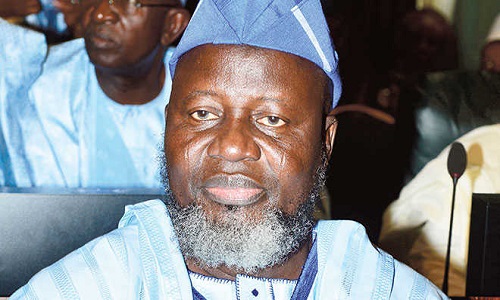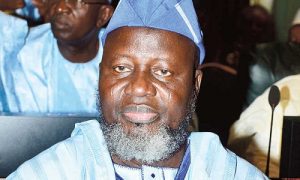
 Nigeria will need to direct attention at effectively leveraging the latent ($2.24 billion) N860 billion investment in undersea cables in the country as part of measures towards recovering from its on-going economic recession, experts have said.
Nigeria will need to direct attention at effectively leveraging the latent ($2.24 billion) N860 billion investment in undersea cables in the country as part of measures towards recovering from its on-going economic recession, experts have said.
This was the harmonised position inferred from discussions by industry experts and stakeholders at this year’s edition of the 2016 Nigeria ICT Impact CEO Forum held at the weekend.
“Without broadband penetration, there cannot be enjoyment of benefits of ICT and we need to ensure that we work together to ensure latent facilities such as the various international undersea cables we have at the shores are deployed across the country,” said Minister of Communications, Mr. Adebayo Shittu, at the forum held weekend.
He stated that in the current economy recession, government was poised to leverage the over 10 terabit bandwidth capacity on the submarine cables to provide jobs and drive efficiency in all other sectors of the economy, stressing that ICT is now an enabler for economic growth. Acting Director General of National Information Technology Development Agency (NITDA), Dr. Vincent Olatunji, maintained that most developed nations have been where they are because they had been able to leverage ICT to the benefit of their economy.
Broadband penetration in the country currently stands at 10 per cent while the coming on board of various submarine cables such as MainOne, Glo 1, SAT-3, WACS and ACE and their proper transmission across the nooks and crannies of the country has been identified as essential to achieving broadband. In specifics, the submarine cables included the $300 million 7,000-kilometre MainOne cable, which landed in Nigeria in June 2010; the 10,000 kilometres Globacom’s $800 million Glo 1 cable.
It landed in October of the same year. Also, the worth of NITEL’s South Atlantic 3 (SAT 3) is put at over $600 million and the MTN’s West African Cable System (WACS), cost about $650 million. ACE cable, which was landed in Nigeria by Dolphin Telecoms, cost about $700 million.
According to stakeholders, who assessed the level of ICT penetration and challenges facing last-mile deployment of broadband infrastructures in the country, broadband has become the 21st Century economic development tool that should not be ignored by any nation.
Though Nigeria has plan to achieve 30 per cent broadband penetration by 2018 in line with its National Broadband Plan (NBP), the rate of penetration has been slowed down by a number of challenges raging from Right of Way (RoW) issue, insecurity, multiple taxation, vandalism, among others.
“Current estimates put the penetration to about 13 per cent but the implication is that the nation has very little time to achieve the target and probably surpasses it, ” said Executive Vice Chairman of the Nigerian Communications Commission (NCC), Prof. Umar Danbatta at the forum.
Danbatta, who was represented by the Director, Public Affairs, NCC, Mr Tony Ojobo, insisted that the country needs to put in more efforts towards achieving the broadband target by 2018.
“Up from the 10 per cent penetration recorded since last year, current estimates put the penetration at about 13 per cent, but the implication is that the nation has little time to achieve the target and probably surpass it. “One may begin to wonder why we are laying a lot of emphasis on broadband.
The reason is not far-fetched, as broadband has become a global benchmark for the future of economic development of nations and states,” he said.
He explained that the World Bank recognises the socio-economic impact of broadband penetration and the International Telecommunication Union (ITU), currently promotes broadband through the Broadband Commission, for the benefit of nations. “Recommendations of this commission make it imperative that any nation that is serious with economic development must address the issue of availability of broadband very seriously,’’ he said.
Already, World Bank report had said that with every 10 per cent increase in broadband penetration, there was a 1.3 per cent increase on a country’s Gross Domestic Product (GDP). In the first quarter of this year, the report of the National Bureau of Statistics (NBS) indicated that more than N1.4 trillion was generated by the ICT industry.
Former President, Association Telecoms Companies of Nigeria (ATCON), Dr. Emmanuel Ekuwem, noted that ICT and, most importantly pervasive broadband access to drive all sectors of the economy is what can give the country sustainable economic growth and development.
